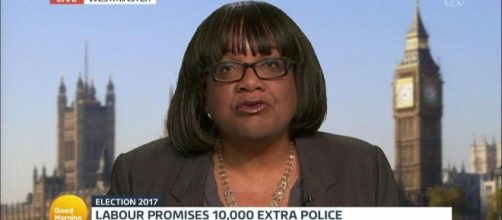diane abbott's media performances are a worry for many Labour supporters. Somehow, she manages to look and sound incompetent. Viewers and commentators have, however, pointed out that Andrew Marr's pressing treatment of her was in stark contrast to his rather soft approach to Amber Rudd during the same programme.
#Marr has a nice cosy chat with Amber Rudd after spending 20 minutes trying to smear Dianne Abbott. pic.twitter.com/toa3DdwY3n
— Curious (@myviewontopic) May 28, 2017
Much like Andrew Neil repeatedly questioning Jeremy Corbyn about his views on the IRA, Andrew Marr took the opportunity to read out a statement Diane Abbott made no less than 35 years ago.
In her usual, rather clumsy fashion, #Diane Abbott referred to her change of hairstyle, which undoubtedly, will gain her more ridicule from her many adversaries. In fact, if you take a look at #Diane Abbot's Twitter page, many contributors seem to dread the thought of her becoming the future Home Secretary.
#marr the problem is not Jeremy corbyn becoming PM that worries me,it's dianne Abbott becoming UK home sec & why I won't be voting Labour!
— Steve Stemidd (@stemidd2) May 28, 2017
While many wonder why the Labour Party keeps allowing Diane Abbott to go on various TV and radio interviews and underperform, the general media appear to relish the opportunity to make her look incompetent. Yesterday morning, Andrew Marr also managed to continuously interrupt and attempt to throw her off course.
The IRA question
Many commentator's obsession with the IRA question is slightly questionable. No doubt, prominent figures like Andrew Neil and Andrew Marr would emphasise the need to ask such questions for the purpose of painting a complete picture of candidates for the voters. While this may indeed be necessary, the relevance of views held such a long time ago must be questioned.
In the case of the IRA, "talking to terrorists" ultimately lead to the cease-fire in 1994 and kick-started the peace process. If people like John Hume, and even Bill Clinton, had not been willing to sit across a table with representatives of the then much-maligned Sinn Fein party, the peace process would never have come about and peace in Northern Ireland would probably be as elusive as ever.
The importance of impartiality in the media
The media can play a decisive role in swaying public mood. Depending on the interviewer, candidates receive a softer or harsher treatment. It is doubtful whether the members of the media as a whole are doing the public a favour by purposely colouring interviews rather than remaining impartial.
Surely, regardless of party allegiance, candidates should be allowed to make their voice heard without interruptions. Similarly, it would make sense to question candidates on current policies and plans for a future government instead of referring back to often irrelevant positions held a long time ago.


